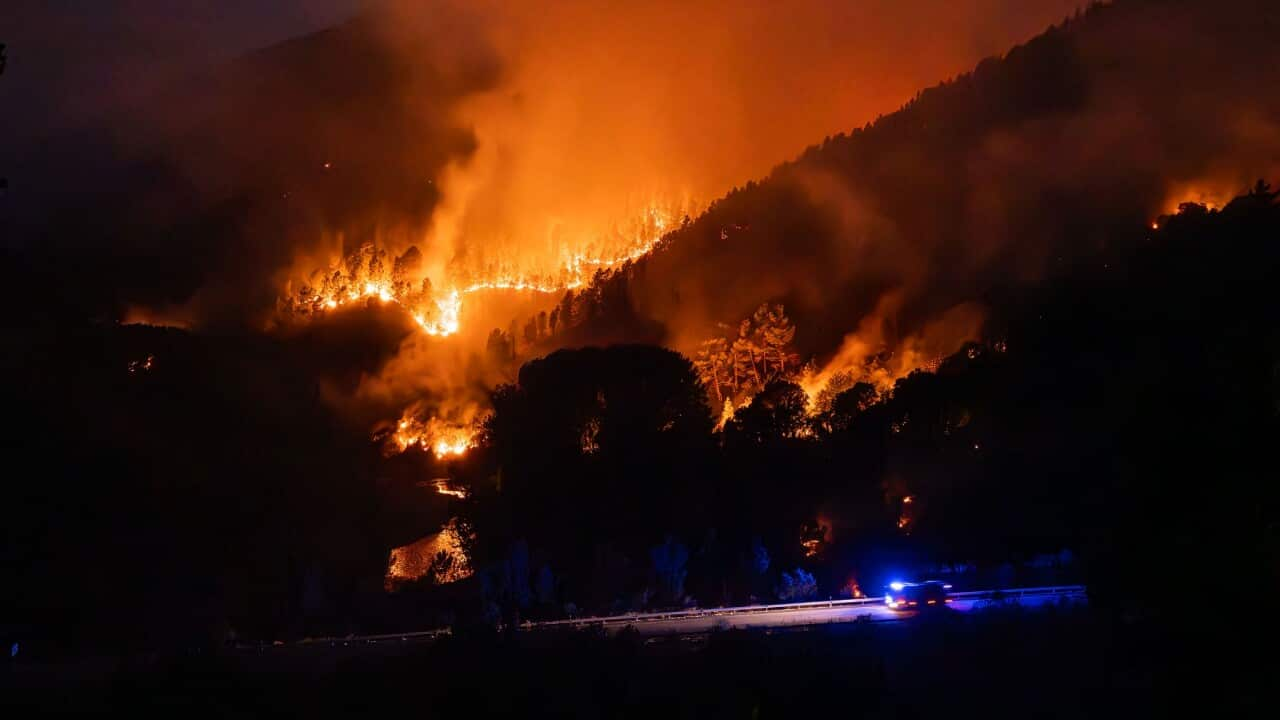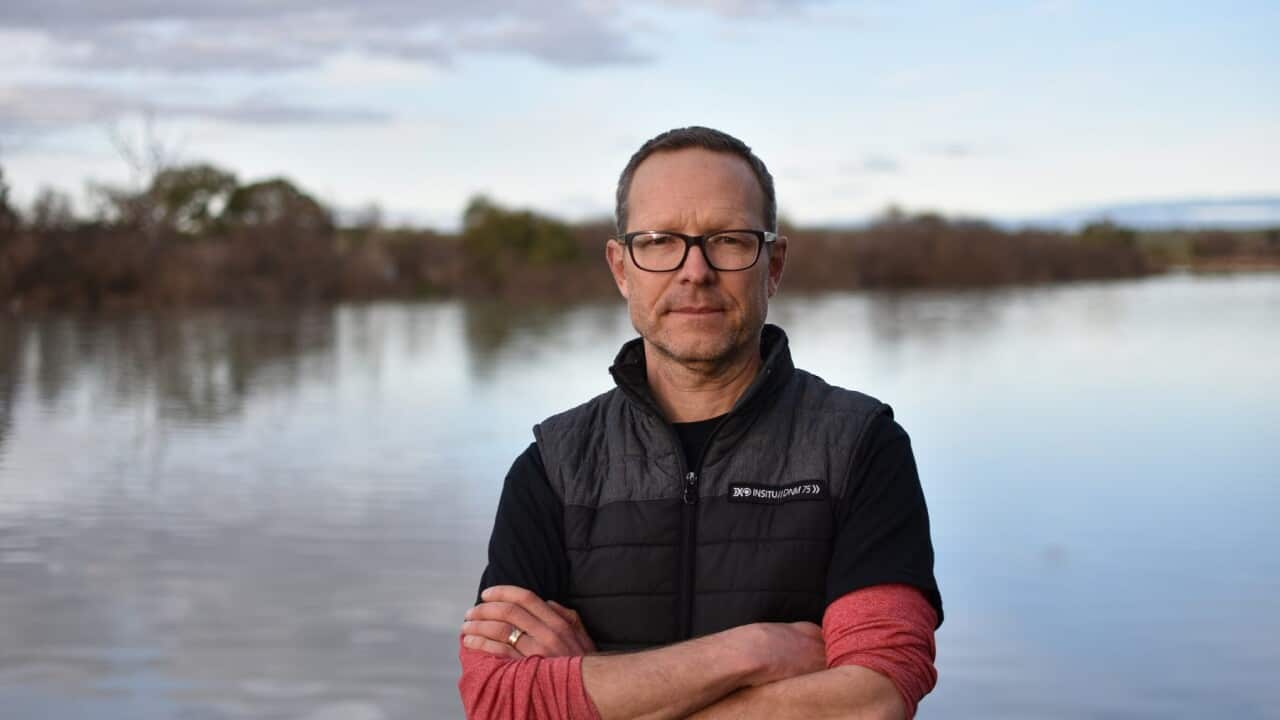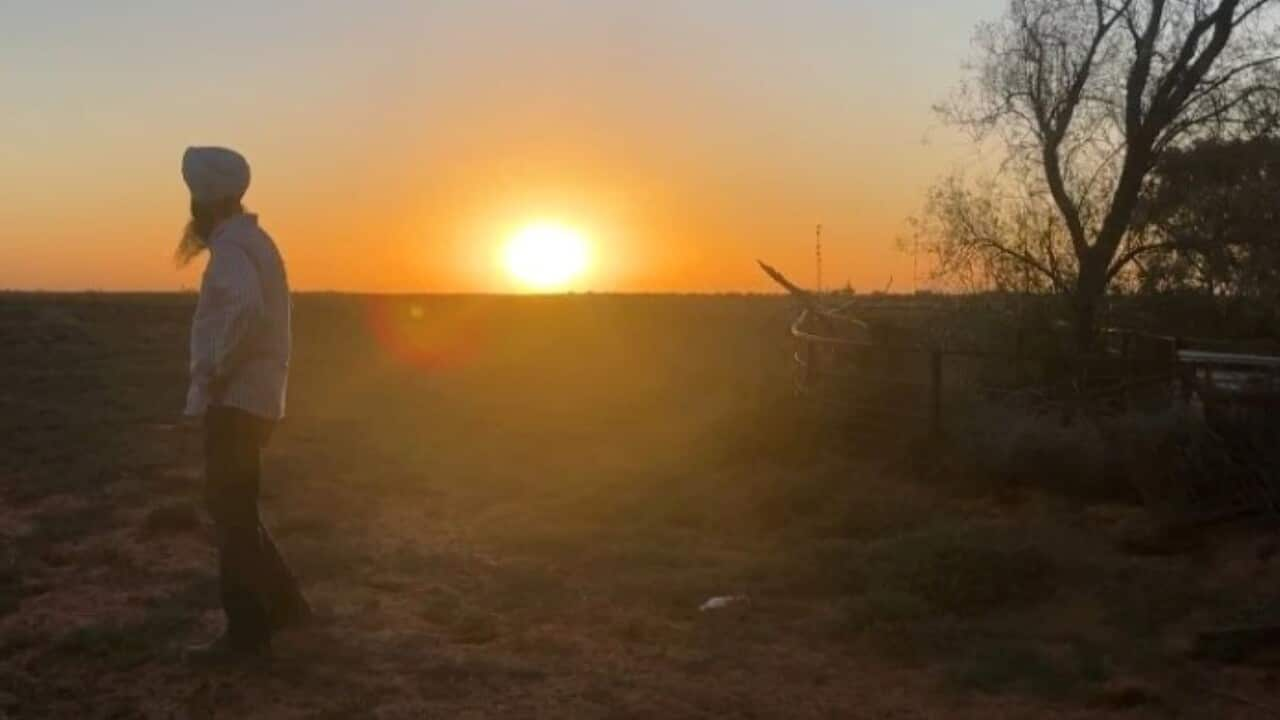Listen to Australian and world news, and follow trending topics with SBS News Podcasts.
TRANSCRIPT
The hottest August in Spanish history has just passed.
But the same record was broken the year before in 2023 - and in 2022.
It's a pattern - heat wave records toppling with every passing year.
And Spanish Prime Minister Pedro Sanchez Castejon- Sanchez did not mince words in his assessment of an emerging crisis.
“It is clear for this Spanish government, we are decided and convinced, that this terrible (heat) wave we suffered this year was not by accident or due to a pyromaniac plot, as sometimes people suggest on social media. Let us be serious, let us be accurate.”
The fires in Spain have killed four people this year and burned more than 382,000 hectares, according to the European Union's European Forest Fire Information System.
Last week Spanish Interior Minister Fernando Grande-Marlaska declared multiple emergency sites impacted by 113 fires.
“To give you an idea of the magnitude of the tragedy, the declaration of areas affected by a civil protection emergency covers 16 Spanish regions. Although the emergency episode has not concluded, as I have pointed out, it is clear that we are facing one of the greatest environmental catastrophes of recent years.”
Seventy days - that's two thirds of the past Spanish summer - were classed as a heatwave, with minimal humidity and extreme high temperatures.
Now, Mr Sanchez is proposing a national pact to protect the country - and region - from extreme weather.
His plan includes a climate refugee network, to accommodate people in the country and neighbouring areas that are displaced by natural disasters.
“We propose to the administrations, that all of us, every single one of us, increase and keep for the 365 days of the year all of the human and technical resources needed to prevent and to fight extreme climate events. What does this mean? To rely on firefighters and brigades that are robust, trained, endowed with the appropriate vehicles and technologies, to support long-term public policies.”
Spain is not the sole country to swelter through this past European summer - or those of the past three years.
The EU sent reinforcements to fight fires there and in Greece, where fires tore across the countries west - and some tourist islands were evacuated.
Last mont], France endured extreme high temperatures that contributed to a fire the size of Paris - the largest the nation has seen in 75 years.
Doctor Michael Grosse - a research scientist at CSIRO - an Australian-government funded scientific research agency - says all nations should adopt a policy to reduce fossil fuel emissions, or face worse climate outcomes and impacts in coming years.
“The evidence points to getting rapidly to a net zero emissions situation, where we can stabilise the climate as soon as possible is our best chance at lessening the further increase of warming and lessening the impacts of climate change. It's kind of as simple as that.”
According to Copernicus - the EU's Earth observation program, Europe has been warming twice as fast as the global average since the 1980s.
Professor Sarah Perkins-Kirkpatrick from the Australian National University says that is because there is a higher proportion of land mass relative to water.
90 per cent of heat from global warming is absorbed by the ocean and land requires less energy to heat.
Another factor is a phenomenon known as 'arctic amplification'.
“Arctic amplification, specifically, is because we're seeing less snow cover there. There is more snow melting, more ice caps melting because of climate change. And ice is actually quite light in colour so it reflects a lot of the incoming solar radiation or sunlight effectively, straight back out into space. It doesn't do anything in terms of heating our atmosphere. But then when this melts, we have a dark surface, that's the ocean. It is much darker than ice and snow obviously, so it is absorbing a lot of that sunlight and solar radiation coming in and then it re-radiates some of that energy back into the atmosphere as long wave radiation.”
Switzerland's Birch glacier - already melting from increased annual temperatures - partially collapsed in May [[2025]].
Geologists pointed to climate change as having destabilised a mass of rock which fell and brought ice with it, crushing the small town of Blatten.
At the time, Raphael Mayoraz, Director of the National Hazards Office said this was highly unusual.
“Now this worst-case scenario has happened, that means the three million cubic metres of rock that fell on to the glacier have all come down with the glacier. And that is very, very rare.”
But scientists including Dr Grosse say this rare event - like so many natural disaster incidents around the world - is certain to become less so.
Europe experienced its hottest years on record in 2023 and 2024.
“And in fact as the climate warms up, we increase the chances of what we call record-shattering heat. So that means the record broken by a larger margin than it was last time. That is just the feature of a warming climate and it means we are in for more extremes as the climate keeps on warming.”
In July, a rapid study of the last ten days of June by the Imperial College of London, revealed hundreds of deaths in the Bloc were directly attributable to Climate Change.
Friederik Otto is an associate professor of climate science and one of the study's authors.
She explained the study when it was published [[July 2025]].
“We looked at 12 European cities that are sort of a rough geographical spread of the continent and are major cities where lots of people live. And we find that overall, there are estimated to be that 2,300 people have died in this heatwave and of these 2,300, 1,500 have only died because of climate change.”
In 2003, around 70,000 people died in heatwaves across Europe - which at the time, were record-breaking.
In the 20 years since, the temperature highs have become higher - but the human toll has not.
Professor Perkins-Kirkpatrick says while climate-driven heatwaves will inevitably worsen, fatalities can be reduced.
“If we can adapt and move on, I guess, put in more meaningful adaptation measures and educate people on what to do in extreme heat, a lot - not all, but a lot of these impacts can be lessened.”













